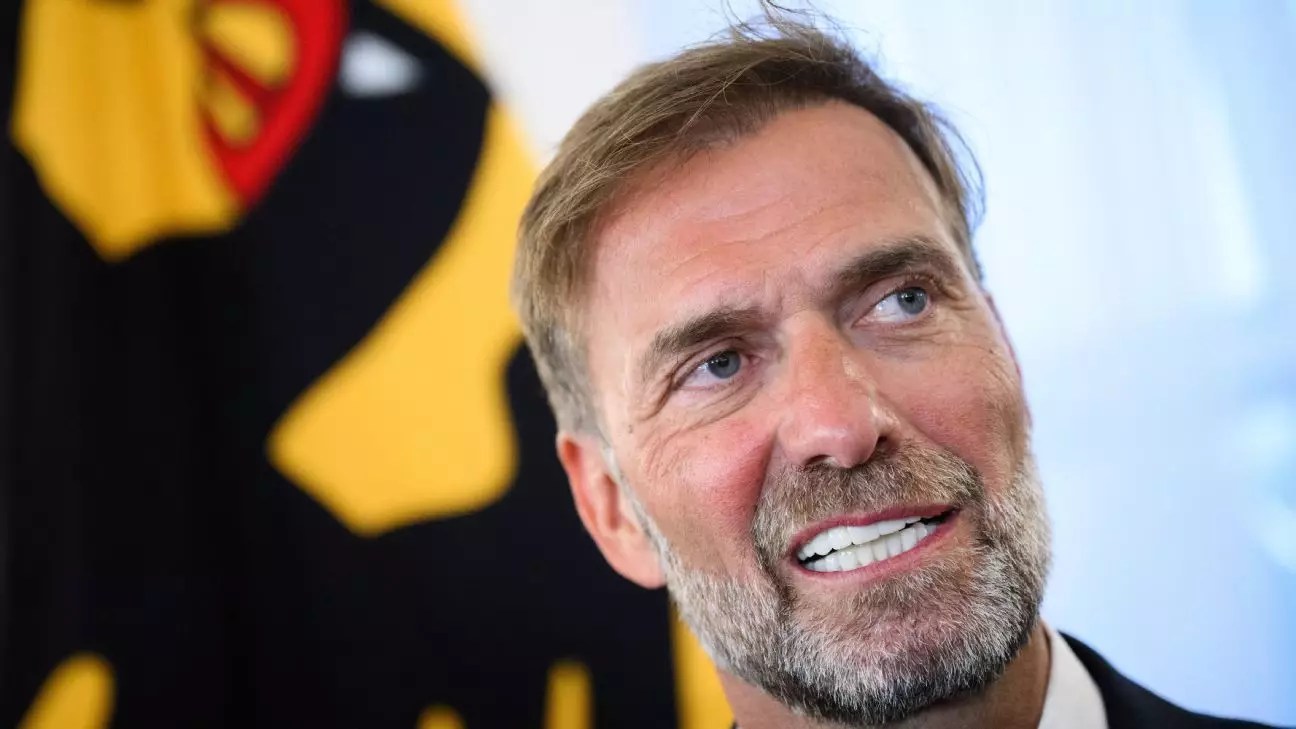Jürgen Klopp has made headlines with his announcement to lead Red Bull’s global football operations, a decision that has sparked considerable debate among fans, particularly those loyal to his former clubs in Germany. Transitioning from his storied tenure at Liverpool Football Club to a corporate entity like Red Bull presents an array of questions about the role of corporate influence in football and the implications for legacy and loyalty.
In a recent podcast interview, Klopp expressed his intent not to offend any of his past affiliations. His statement, “I didn’t want to step on anybody’s toes, definitely not,” indicates the sensitivity surrounding his move. It’s evident that signing on with Red Bull, a brand often criticized for its aggressive marketing strategies in football, feels like a betrayal to many. Klopp acknowledged the inevitable disappointment of fans regardless of his decisions, remarking that his return to coaching would not universally please everyone. This highlights a unique dichotomy: while coaches strive for personal fulfillment and career growth, their legacies and relationships with former clubs are continually scrutinized by vocal fan bases.
The backlash from fans of Borussia Dortmund and Mainz, where he established his reputation, cannot be overlooked. The emotional investments that fans have in their clubs create a passionate environment where change is often met with resistance. For supporters, Klopp’s collaboration with Red Bull may symbolize a departure from the traditional values they associate with the clubs he once led.
The presence of Red Bull in football has always generated debate, particularly in Germany. Many fans view clubs like RB Leipzig as emblematic of a broader trend where corporate entities distort the competitive landscape in pursuit of success—often at the expense of historical, community-oriented clubs. Klopp’s decision to align himself with such an organization raises immediate concerns about legitimizing a corporate takeover of football’s soul.
Despite these concerns, Klopp defended the positive aspects of Red Bull’s involvement, particularly in enhancing the football scene in the former East Germany. He suggested that projects like RB Leipzig have revitalized local football, providing opportunities and visibility that were previously non-existent. This perspective indicates Klopp’s belief in the potential benefits of corporate partnerships, though it complicates his image with certain fan bases.
Upon his departure from Liverpool, Klopp mentioned he was opting for a “long break.” At 57, the question of continuity remains pressing. His chosen role at Red Bull will differ dramatically from the intense, high-pressure environment characteristic of daily coaching. By positioning himself primarily as an adviser, Klopp seeks to mitigate the isolation often felt by head coaches, as he noted, “the coach is often the loneliest person at the club.” His insights and experience could foster collaboration across multiple teams and enhance the development of coaching strategies within the Red Bull network.
This non-traditional approach represents a significant shift from the typical coaching roles fans are accustomed to seeing. It evokes a sense of a broader strategic mandate—an opportunity for Klopp to utilize his extensive football knowledge without the immediate pressures tied to managing a singular club. For a coach known for his emotional intelligence and relationship-building, this role may prove refreshing and rewarding.
As Klopp embarks on this venture with Red Bull, the footballing world will closely observe both his impact on their clubs and the broader implications for football governance. This position could act as a litmus test for the evolving relationship between corporations and sports, particularly how traditional views on loyalty and success are being challenged in the current landscape.
Klopp’s upcoming chapter with Red Bull encapsulates the complexities of modern football, where personal ambition, fan loyalty, and corporate influence intertwine. His decision may continue to evoke mixed reactions from fans and pundits alike, but it undeniably shapes a new narrative that will influence the football landscape for years to come.


Leave a Reply